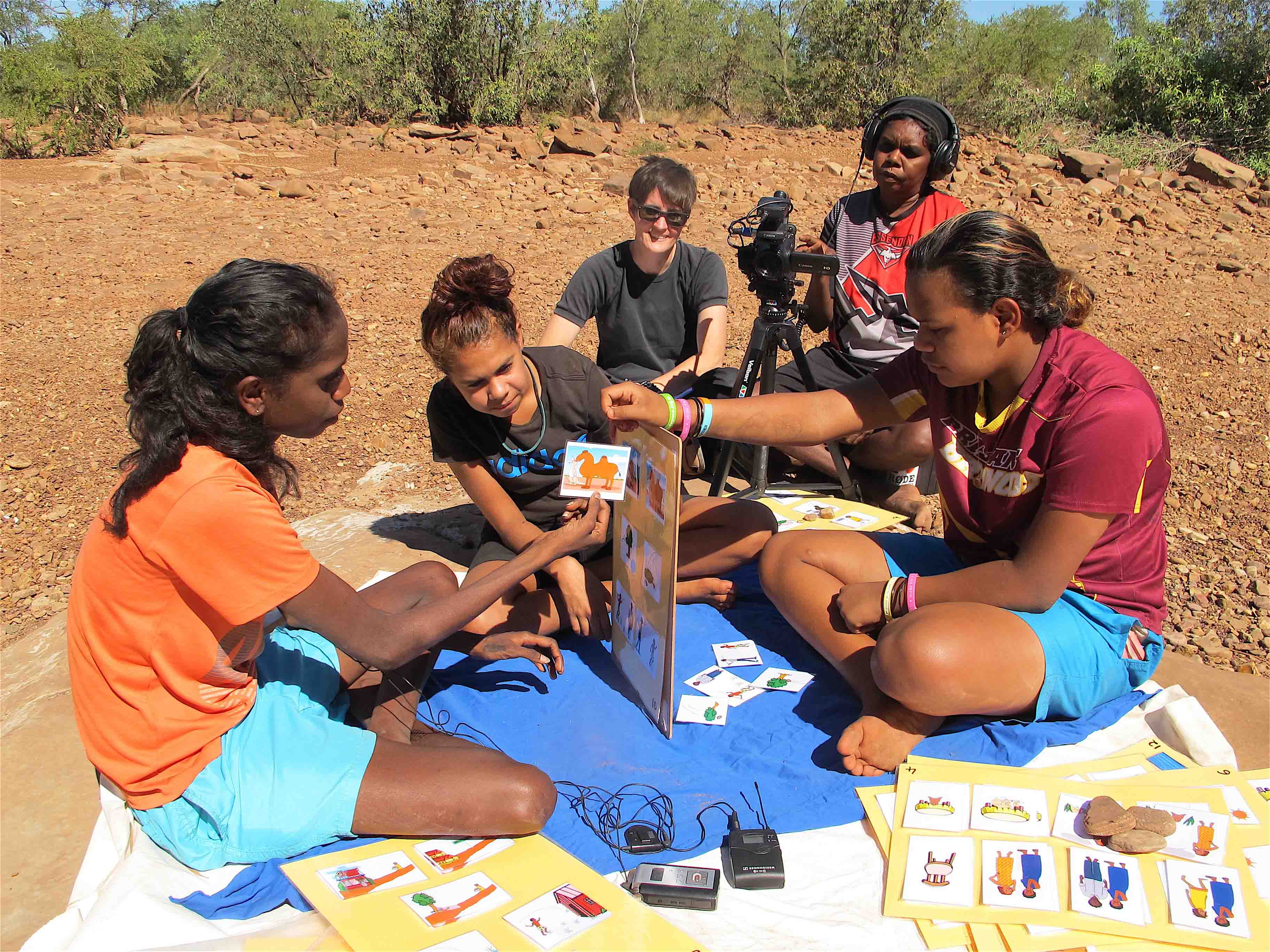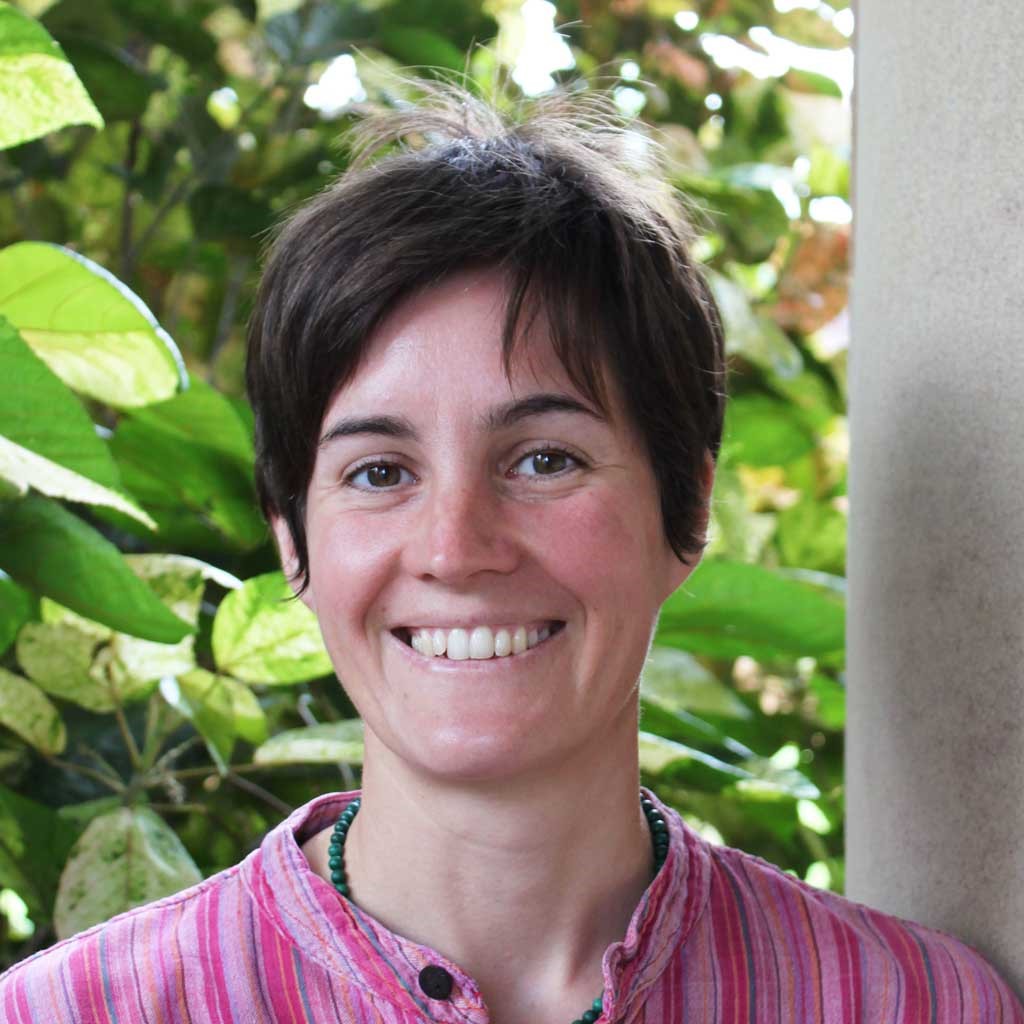Associate Professor Felicity Meakins
"I am driven to create change and help lead the first extensive survey of colonial language change in Australia".
The English language has changed the linguistic landscape of Australia profoundly since colonisation began. Currently, only 18 of the first 300 First Nations languages are still learnt by children in Australia.
 Fortunately, expert linguist Associate Professor Felicity Meakins, from UQ’s School of Languages and Cultures, is driven to create change and is helping to lead the first extensive survey of colonial language change in Australia.
Fortunately, expert linguist Associate Professor Felicity Meakins, from UQ’s School of Languages and Cultures, is driven to create change and is helping to lead the first extensive survey of colonial language change in Australia.
ARC Future Fellow, Dr Meakins is Deputy Director of the UQ node of the ARC Centre of Excellence for the Dynamics of Language. She is currently leading the project ‘Loss and renewal: First Nations languages since colonisation’.
“We have developed new methodologies for investigating and predicting the mechanisms of change across languages and generations of speakers” Dr Meakins said.
“These predictions will be invaluable to the language revitalisation movement in Australia”.
“One of our research innovations has been to utilise methods from evolutionary biology to map language change and understand its drivers” she said.
Dr Meakin’s research team can demonstrate that unlike other languages, Gurindji does not become simplified when dominated by other languages, such as English.
Significantly, the work has shown that the exclusive focus on English in the Western Education system has had a detrimental effect on First Nations languages.
This research has been undertaken in collaboration with Karungkarni Arts and Murnkurrumurnkurru ranger group in the Northern Territory and in Western Australia with collaboration with several Aboriginal communities, particularly; Kalkaringi, Elliott and Balgo.
In the ARC Centre of Excellence, Dr Meakins is collaborating with colleagues from The University of Melbourne and Western Sydney University, along with biologists from The Australian National University to model the mechanisms of language change.
“Mapping language change in Australia is crucial to recognising new ways of speaking & working with First Nations communities towards guiding principles for language revitalisation,” she said.
The process of learning another language involves mapping a path between the original language and another. To that end, understanding the first language of Indigenous children is essential to producing better education outcomes.
“I’m encouraged by the fact that in recent years, First Nations communities all over Australia have been rallying to renew their languages” Dr Meakins said.
Many new projects now exist - from signage projects which raise the visibility of local languages (e.g. the “Welcome to Ngunnawal” signs found at entry points into the ACT), the "Wurundjeri Stories Indigenous Signage Trail" in Warrandyte State Park. Also, the university-level Indigenous-led language learning courses e.g. Yolngu Matha courses at Charles Darwin University, Pitjantjatjara courses at University of South Australia, Gamilaraay courses at the University of Sydney and Kaurna courses at the University of Adelaide.
These programs demonstrate that language revitalisation movement in Australia has undergone an inspiring galvanisation over the last 10 years and the wider Australian community, will no doubt benefit from a better understanding of language change and nature of transmission in Indigenous communities.
“I look forward to seeing an increase in substantial education, health and economic benefits associated with supporting First Nations languages” Dr Meakins said.
She currently holds an ARC Future Fellowship and is studying changes in Indigenous languages brought about by colonisation. This program of research will also support Dr Meakins in building research capacity through the training and development of early career researchers.
Dr Meakins began working as a community linguist in 2001 at Diwurruwurru-jaru Aboriginal Corporation, facilitating revitalisation programs for Bilinarra and Ngarinyman people.
After her PhD was completed in 2008, she continued documenting Gurindji, Bilinarra and Gurindji Kriol.
If you are interested in partnering with us in this type of research please contact our Research Partnerships Manager.


Deputy Director, UQ Node
ARC Centre of Excellence for The Dynamics of Language
ARC Future Fellow
School of Languages and Cultures
Faculty of Humanities and Social Sciences
